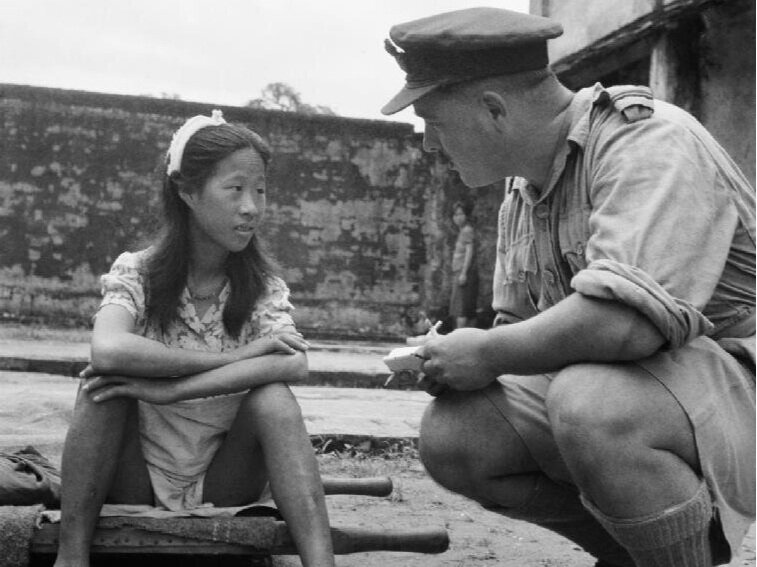[ad_1]

The phrase “comfort women” is a euphemism for the rape, sexual slavery, and kidnapping of women and girls by the Imperial Japanese Army in colonized and occupied territories. The Japanese military first established “comfort stations” in Shanghai around 1932, “yet the outbreak of the second Sino-Japanese War in 1937 prompted the Japanese military to adopt the general policy of establishing military brothels until the end of World War II in locations including China, Philippines, Taiwan, Indonesia (then formerly the Dutch East Indies), Malaysia, Vietnam, East Timor, and other Japanese-occupied territories.” According to one “rationale”, the military brothels provided a “solution” to soldiers’ incidence of wartime sexual violence by creating a space for “prostitutes” to “comfort” Japanese soldiers. In reality, the “comfort women” system was militarized sexual slavery and systematic human rights abuse. Survivors of this gender-based violence deserve justice, which may happen in different forms: an apology to individuals, an International Criminal Court (ICC) investigation to hold individual actors accountable, and state-to-state reparations for harms done to its citizens.
Survivors deserve to be heard and acknowledged. It is their right of reply to attest on the record to the reality of their experience. “The soldiers came, and they found us,” Zhang Xiantu said. In 1942, Xiantu awoke to the sound of Japanese soldiers in her home in Yu County, Shanxi province, China. She tried to run, but her feet were bound and broken ever since she was a child, the daughter of a landowner. Captured and imprisoned for 20 days, Xiantu was “prostituted as a ‘comfort woman’ for Japanese soldiers battling to control northern China.” Additional survivors include, among many others, Peng Zhuying, age 93, and her sister Peng Renshou, 97, who live in Yueyang City in Hunan Province. Soldiers of the Imperial Japanese Army blinded Zhuying and took her and her sister to a military brothel in 1944. Still, other individuals drafted for military sexual slavery by Japan prefer to be called halmoni (an affectionate term for “grandmother” in Korean language). These women survived rape and sexual slavery.
Some scholars have tried to rationalize the “comfort women” history. Specifically, J.M. Ramseyer explained the situation of women drafted for military sexual slavery by Japan as a “protracted political dispute over wartime brothels” with the “straightforward logic of the credible commitments basic to elementary game theory.” Ramseyer’s essay attempted to dismissively reduce the largest human trafficking atrocity of the 20th century to a “contracting problem.” In his estimation, game theory accurately explains the systematic sexual enslavement of at least 200,000 women in China (1932-1945), as a “wage contract that rewarded effort.”
Arguably, however, Ramseyer’s essay presents an unjustified, inaccurate, and blatantly false assertion about the realities of “comfort stations” during World War II. “Contracting for sex” is an attempt at the historical erasure of the atrocities suffered by women in China under Japanese occupation. This is not a contracting problem. A valid contract’s required elements include offer, acceptance, and consideration by persons with a legal capacity to be held liable for duties they agree to undertake, unless the person is a minor. Xiantu, among others, did not accept the soldiers’ capture of her body, and even if she did, she was age 16 and a minor. She did not agree to be raped repeatedly over a period of 20 days. The deliberate infliction of serious bodily or mental harm, coupled with forcible transfer and rape, cannot be confused with paid sex work in order to evade truth, consequence, and accountability.
Forced into servitude and exploited as sex slaves for years throughout Asia, Chinese girls and women who were “drafted for military sexual slavery by Japan” never received an apology or reparations. To date, the Japanese government denies its involvement in the abduction of girls and women and the establishment of a systematic network of “comfort stations.” Despite these efforts at historical erasure, several women in China forced into sexual slavery during the Japanese invasion during WWII removed the veil of silence in 2018 to attest to the realities of rape at the hands of imperial Japanese army soldiers.
[ad_2]




